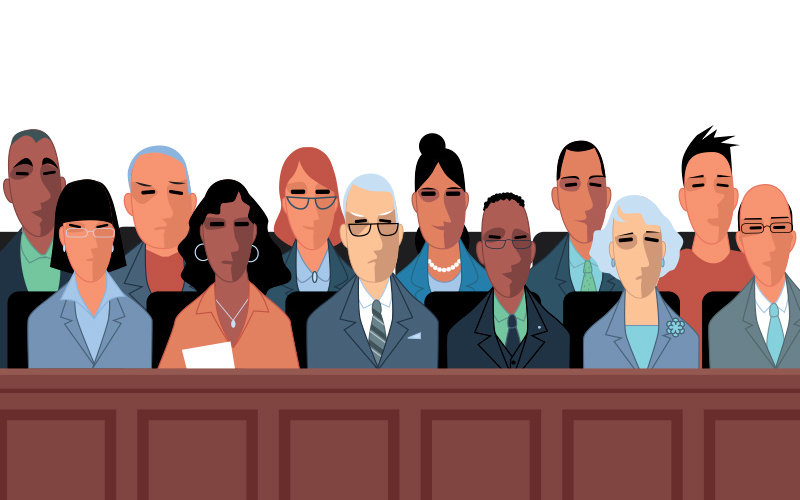
If you see something in the news, can you unsee it or forget it?
When it comes to pretrial publicity, conventional wisdom says “no.” That is why defense attorneys for high-profile clients like Harvey Weinstein or Lori Loughlin, in order to ensure a fair trial, argue for moving a trial’s location or reject potential jurors who have been exposed to news reports about their clients.
Jon Bruschke, chair and professor of human communications at Cal State Fullerton, however, believes that this so-called “strong publicity effect” is massively overstated. He argues that the genesis of this line of thought — a 1997 literature review by Studebaker and Penrod — is flawed, and his own research suggests a more limited effect, mostly on the length of sentencing.
Challenging the ‘Strong Publicity Effect’
Bruschke disputes Studebaker and Penrod’s case on human biology, communications theory and the study’s methodology.
“People can’t remember things,” he says. “In a 2002 study by Neil Vidmar at Duke University School of Law, respondents were given three front-page stories about a notorious drug dealer and murderer who was named 17 times in the articles. Two weeks later, only one person could recall the name.”
Furthermore, the elaboration likelihood model suggests that the intense spotlight on trial evidence would override any publicity seen previously. “The O.J. Simpson trial might be one of the best examples of this,” says Bruschke.
He also questions the choice of studies included in the 1997 literature review; if the publicity effect is as prevalent as claimed; and whether such an effect is augmented by bias in the study design. For example, there are often long delays (six months to two years) in real-life cases between the arraignment and trial. Delays in research studies are much shorter (weeks), so people are less likely to forget pretrial publicity.
“None of these methodological issues are a problem in isolation,” Bruschke notes. “But they all put upward pressure on the size of the effect.”
Weinstein should have no problem with publicity … it is largely negative, but this should not compromise his trial being fair.
Support for the ‘Weak Publicity Effect’
Bruschke and his colleagues are the leading proponents of a weak pretrial publicity effect. His 1999 study of all federal murder trials in a three-year period showed that high publicity and no publicity cases had equal conviction rates, and low levels of publicity resulted in the highest conviction rates. For those convicted, more publicity resulted in a longer sentence.
He found similar results in a 2004 study of all federal murder or bank robbery cases in Atlanta, Los Angeles and Detroit between 1993-95.
In his 2016 study, Bruschke found an effect for positive publicity but not for negative publicity. Jurors exposed to negative publicity were more prone to convict than those exposed to positive publicity.
“So the evidence is still a little equivocal, and you can’t say it always matters, and you can’t say it never matters,” says Bruschke. “The next big step is to find out when it does matter, and I don’t think social science is quite there yet.
“To me, the bigger question is: What does bias even mean? If you get charged with a felony, you have a 99% chance of being found guilty. The judicial system is replete with bias on the lines of class, race, sex and intersections between them. Paradoxically, the bias introduced by publicity might help defendants gain more resources for their case, which matters more.”
Publicity for Weinstein and Loughlin
So what does this all mean for the 2020 trials of Weinstein and Loughlin?
“Weinstein should have no problem with publicity,” says Bruschke. “All research on pretrial publicity specific to sexual misconduct suggests that, if anything, even negative publicity favors defendants with male jurors. There is publicity, and it is largely negative, but this should not compromise his trial being fair.
“For Loughlin, I know of no research that is specific to celebrities in civil cases, but celebrities do tend to fare better than typical defendants, probably because they have access to better lawyers by and large.”